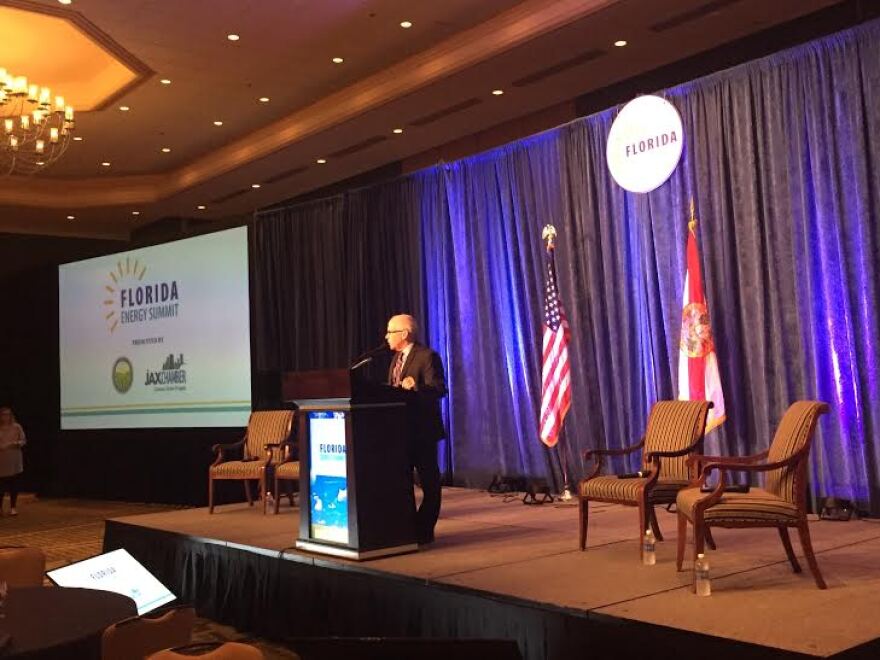Natural gas took center stage at the Florida Energy Summit in Jacksonville Thursday, sponsored by the Florida Department of Agriculture and Consumer Services and hosted by the Jacksonville Chamber of Commerce.
Energy company execs and government officials called the fuel source integral to the state’s energy independence.
But a recent study says Florida and the rest of the country are too reliant on the fuel.
At the event, industry leaders called the methane-based natural gas a fuel for a clean energy future.
But senior energy analyst for the Massachusetts-based nonprofit Union of Concerned Scientists, John Rogers, says although it’s true natural gas burns cleaner than traditional fossil fuels in tailpipes and smokestacks, it’s far from risk-free.
“What happens as that natural gas gets from being in the ground somewhere to getting to that power plant?” Rogers asks. “What kind of leaks are you having where you’re extracting it, you know, at the well head? What kind of leaks do you have in the pipeline to get it there?”
Most natural gas comes from shale deposits and is extracted using methods like hydraulic fracturing, which the union says can be harmful to groundwater and the surrounding environment.
During the last Florida legislative session, Republican lawmakers attempted to pass an industry-backed regulatory framework for the extraction process colloquially known as “fracking.” The move was in response to a snafu in Collier County, where Texas-based energy company Dan A. Hughes Co. was caught conducting unauthorized exploratory drilling similar to fracking.
A public uproar ensued, and the company picked up and left the Sunshine State altogether. Still, lawmakers failed to pass the measure sponsored by Rep. Ray Rodrigues (R-Estero) amid a budget meltdown and opposition from environmentalists and local governments that rejected a provision preempting local bans on fracking.
In a recent study, the Union of Concerned Scientists found Florida gets more than 60 percent of its electricity from natural gas. And energy analyst Rogers worries the finite resource could leave consumers vulnerable to price swings.
But, energy infrastructure company Kinder Morgan Vice President Alan Fore said natural gas reserves aren't in danger of running dry any time soon.
“We’re not talking about a short-term supply here,” Fore says. He was one of the Florida Energy Summit’s first panelists. “One of the things that was discussed at the energy summit today as well by the U.S. Chamber of Commerce was talking about how long and how significant these supplies are. We’re talking hundreds of years here of supply.”
Fore’s company is building a traditional oil pipeline from South Carolina to Jacksonville that could transport up to 167,000 barrels a day.
But Fore says renewable resources are also key to energy independence in Florida.
Still, U.S. Energy Information Administration numbers show less than 3 percent of Florida’s electricity came from renewable sources like wind and solar as of last year.
Because of its seaport, Jacksonville is seen as one of the largest hubs for natural gas transportation and use in the Southeast. A day before the summit started, government officials took a tour of a new compressed natural gas station on the city’s Northside.
Rep. Ray Rodrigues (R-Estero) has again filed his fracking measure for the 2016 Florida legislative session.





